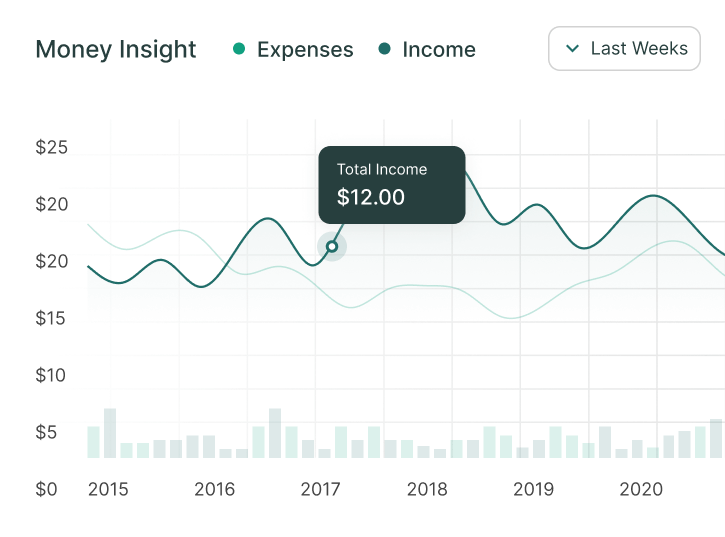Refinance Rates
Refinance rates are the interest rates offered by lenders when borrowers choose to refinance existing loans, such as mortgages or auto loans. These rates represent the cost of borrowing and can vary based on factors such as economic conditions, creditworthiness of the borrower, loan-to-value ratio, and market dynamics. Borrowers may refinance to obtain more favorable terms, such as lower interest rates or revised repayment terms, which can lead to reduced monthly payments or overall interest costs. Shopping around and comparing refinance rates from multiple lenders can help borrowers find the most competitive offers and make informed decisions when refinancing their loans.
Refinance rates represent the interest rates charged by lenders when borrowers choose to refinance their current loans. Refinancing involves replacing an existing loan with a new loan that typically offers more favorable terms, such as a lower interest rate, different loan duration, or revised repayment terms.
The primary purpose of refinancing is to obtain better loan terms, which can lead to lower monthly payments, reduced interest costs over time, or other financial benefits for borrowers.Borrowers may refinance to take advantage of lower interest rates in the market, improve their cash flow, consolidate debt, or change the structure of their loans to better align with their financial goals.
Common refinance requirements
- Sufficient Equity or Ownership Stake:For mortgage refinancing, lenders often require borrowers to have a minimum amount of equity in their home. This is typically expressed as a loan-to-value (LTV) ratio, with lenders typically requiring an LTV ratio of 80% or lower. This means the borrower’s outstanding loan balance should not exceed 80% of the home’s current appraised value.
- Creditworthiness:
Borrowers are typically required to have a satisfactory credit score to qualify for refinancing. While specific credit score requirements vary by lender and loan type, borrowers with higher credit scores generally receive more favorable refinance terms, including lower interest rates. Lenders may also consider other aspects of the borrower’s credit history, such as payment history, debt-to-income ratio, and overall creditworthiness. - Income Verification:
Lenders typically require borrowers to provide documentation of their income to verify their ability to repay the refinanced loan. This may include recent pay stubs, W-2 forms, tax returns, or other financial documents. Self-employed individuals or those with non-traditional sources of income may need to provide additional documentation, such as profit and loss statements or bank statements, to verify their income. - Property Appraisal:
For mortgage refinancing, lenders usually require a new appraisal of the property to determine its current market value. The appraisal helps lenders assess the property’s worth relative to the loan amount and ensures that the loan amount does not exceed the property’s value. Borrowers are typically responsible for covering the cost of the appraisal, which can range from a few hundred to several hundred dollars. - Loan-to-Value (LTV) Ratio:
In addition to equity requirements, lenders may impose maximum LTV ratios for refinanced loans. This ratio compares the amount of the new loan to the appraised value of the property. Lenders often have specific LTV ratio limits depending on factors such as the type of loan, the borrower’s creditworthiness, and the loan program. - Closing Costs and Fees:
Borrowers should be prepared to pay closing costs and fees associated with refinancing, which can include loan origination fees, appraisal fees, title search and insurance fees, recording fees, and other administrative expenses. It’s essential for borrowers to understand the total cost of refinancing, including both upfront closing costs and ongoing interest payments, to evaluate the financial feasibility of refinancing. - Loan Type and Program Eligibility:
Different types of loans (e.g., conventional, FHA, VA) and refinance programs may have specific eligibility requirements and guidelines. Borrowers should research and understand the requirements associated with the particular loan type and program they are considering. - Stable Employment and Financial Stability:
Lenders may consider the borrower’s employment history and financial stability when evaluating refinance applications. Having a stable job and steady income can strengthen the borrower’s application and improve their chances of approval. - Debt-to-Income Ratio (DTI):
Lenders typically assess the borrower’s debt-to-income ratio, which compares the borrower’s total monthly debt payments to their gross monthly income. A lower DTI ratio indicates that the borrower has more income available to cover new loan payments, making them a lower credit risk. - Loan Purpose and Use of Funds:
Borrowers may be required to specify the purpose of the refinance and how they intend to use the funds. For example, in mortgage refinancing, borrowers may use the funds to pay off existing mortgage debt, fund home improvements, or consolidate debt.
Access advanced tools, exclusive saving insights, ad-free experience
Unlock access to advanced tools, exclusive savings insights, and enjoy an ad-free experience with our premium membership. Upgrade today to elevate your user experience and maximize your benefits.

Earn way more on savings
Maximize your savings potential and earn significantly higher returns with our innovative savings solutions. Discover how you can optimize your finances and achieve your financial goals faster. Start earning more on your savings today
Build your wealth with 100.000+ users worldwide!
Enjoy peace of mind while effortlessly growing your funds
Bank account integration
Connect your accounts effortlessly to access real-time insights, automate transactions, and optimize your finances. Experience the convenience of consolidated banking and unlock new possibilities for financial growth.
Investment insights
Gain valuable investment insights to make informed decisions and maximize your financial returns. Our comprehensive analysis and expert recommendations help you navigate the complexities of the market with confidence.
Goal tracking
Track and achieve your financial goals with precision using our intuitive goal tracking tools. Set personalized targets, monitor progress, and receive actionable insights to stay on course towards financial success.
Customizable reports
Elevate your financial management with customizable reports tailored to your unique needs. Gain deep insights into your spending patterns, investment performance, and overall financial health.
Sync across devices
Synchronize your financial data seamlessly across all your devices for unparalleled convenience and accessibility.
Management help
Get the management help you need to take control of your finances and achieve your goals. Our comprehensive tools and expert guidance empower you to make informed decisions, streamline your financial processes.







